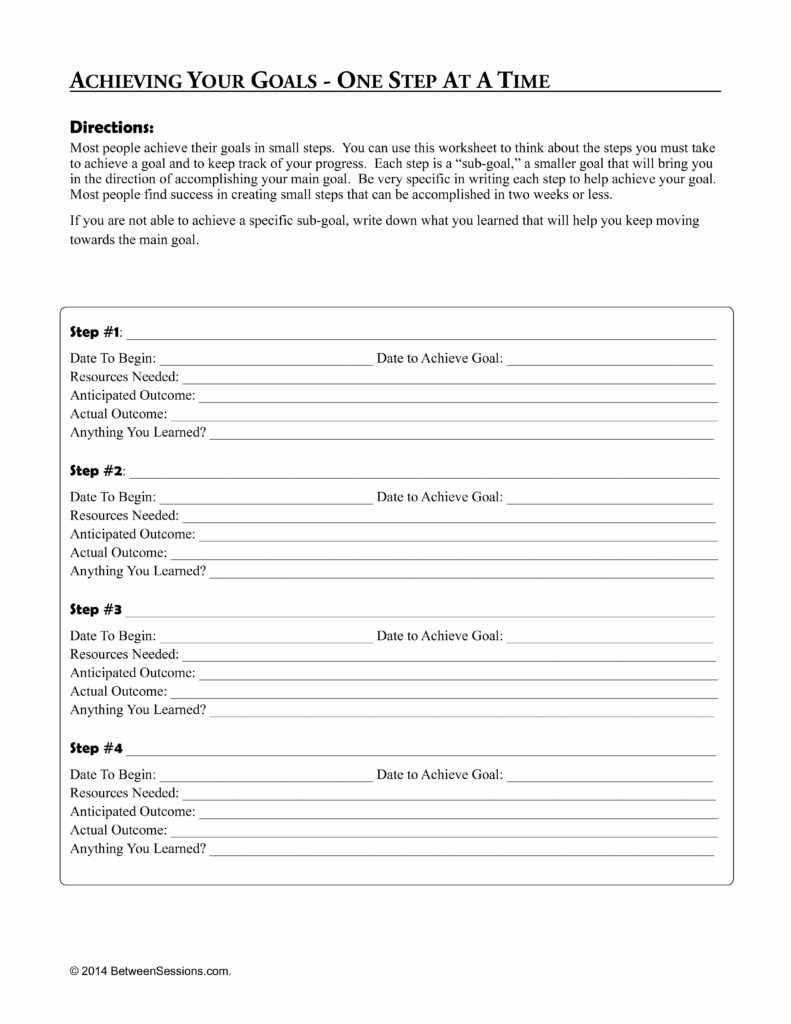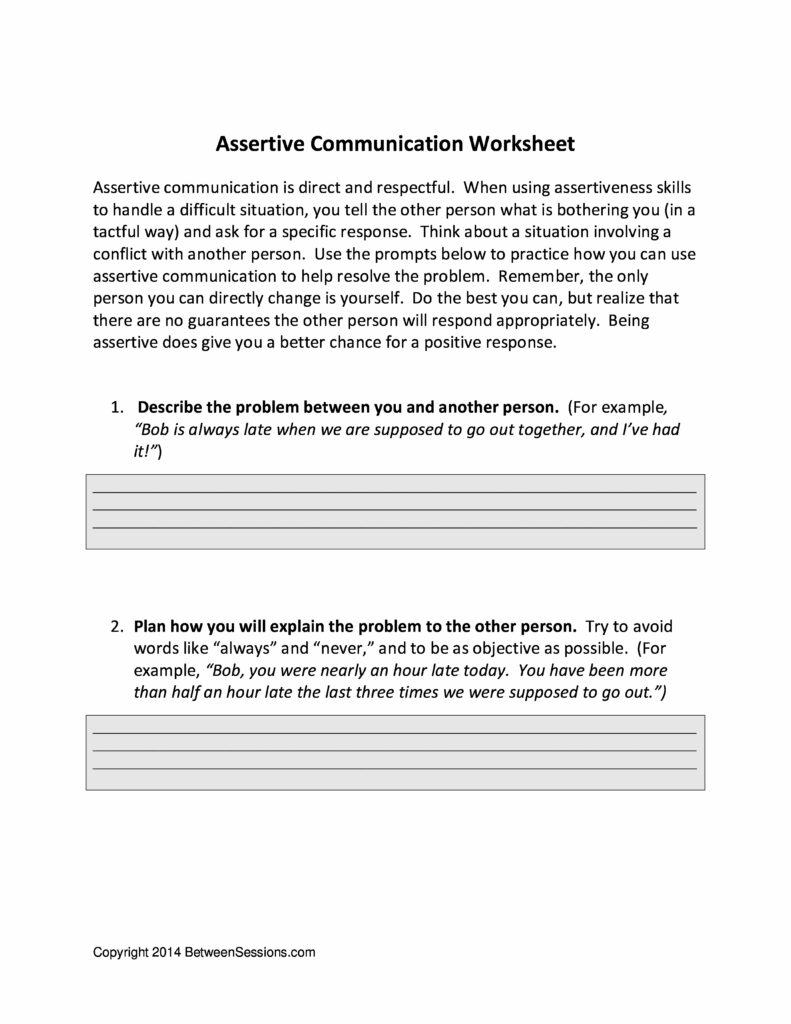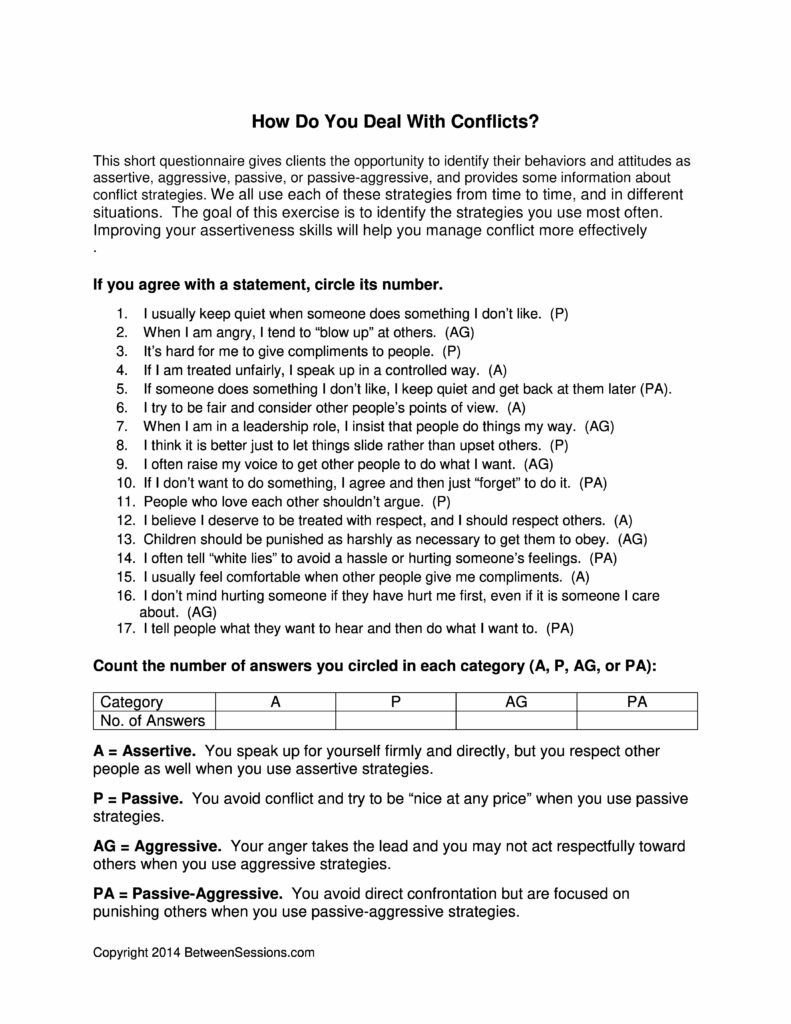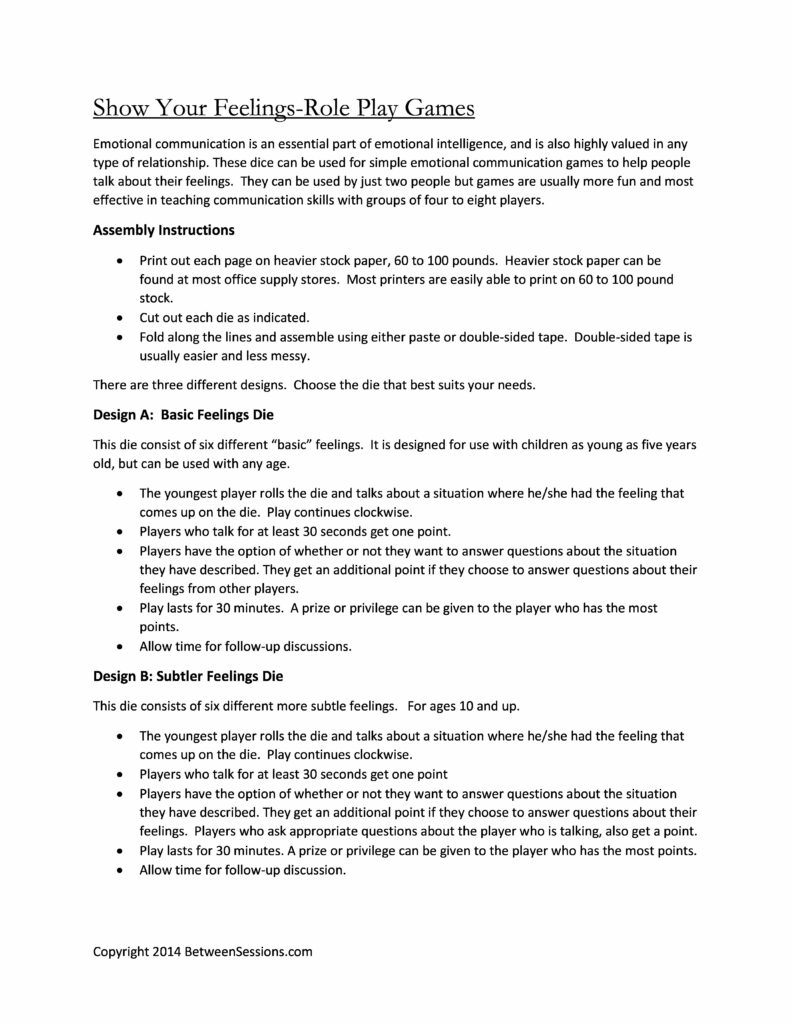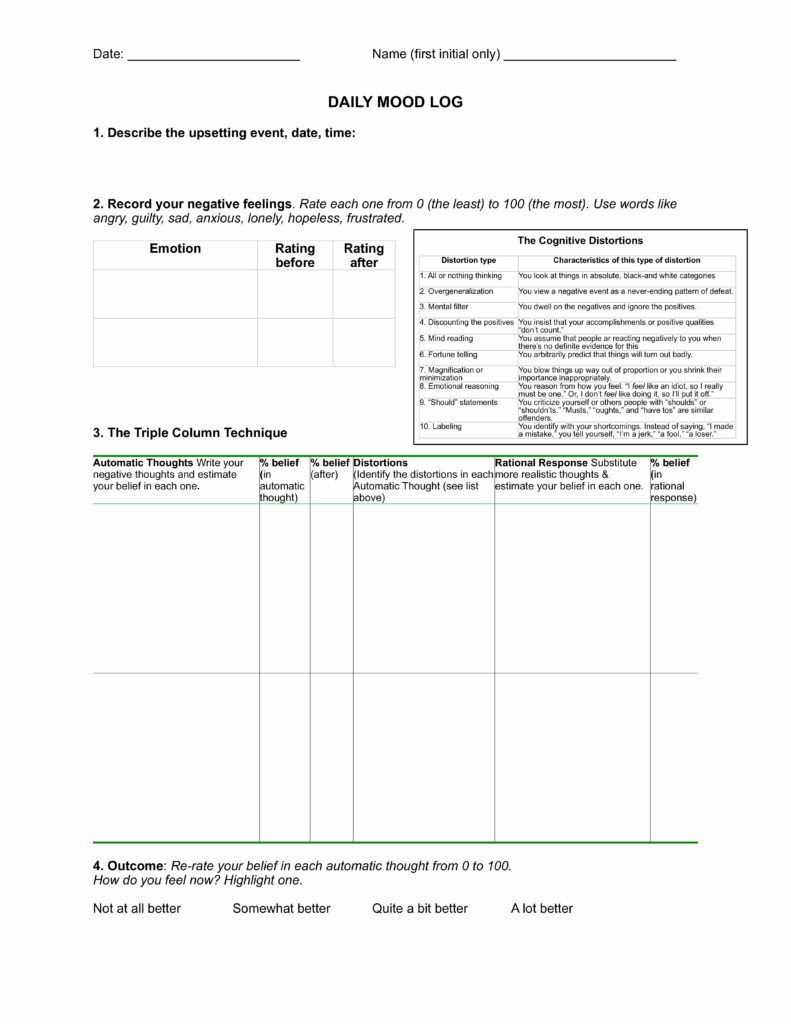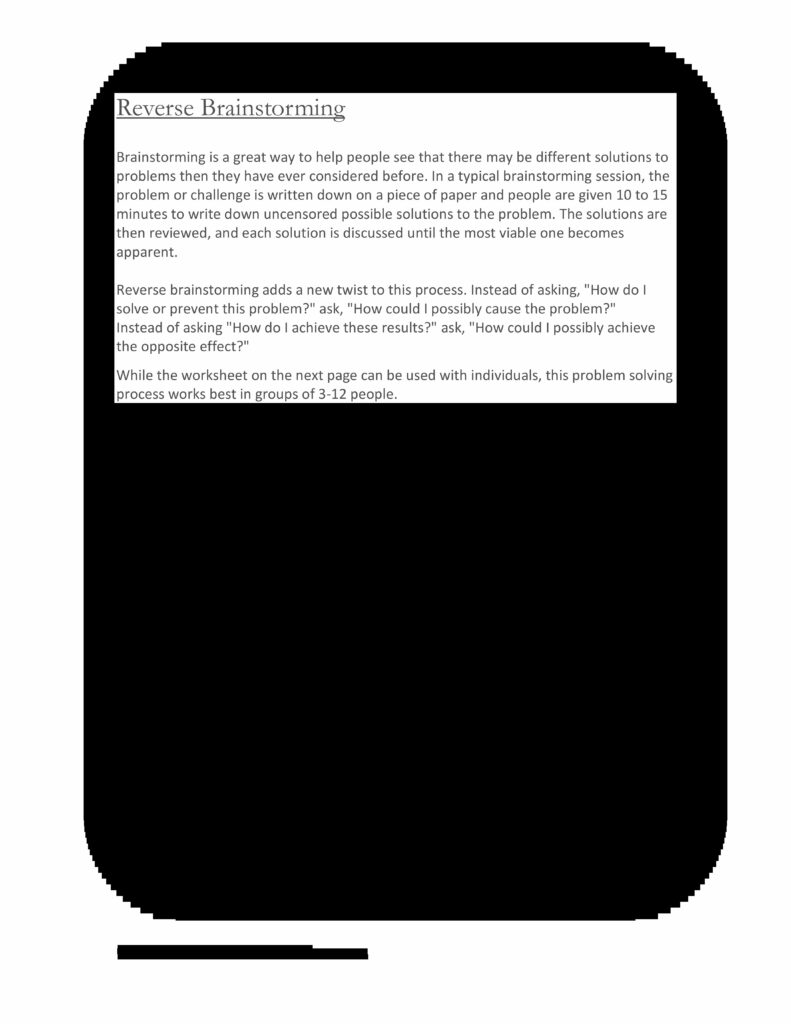This worksheet is designed to help individuals break down a main goal into specific achievable steps. (goal-setting, 1014)
This worksheet is designed to help individuals learn emotional regulation skills. The worksheet asks people to identify activities they can do to calm their emotions and then rate the success of each technique. (DBT, emotion regulation, 0614)
This worksheet helps clients to identify a conflict, describe it in nonjudgmental terms, explain how the other person’s behavior has affected them, and ask for a specific response.
This short questionnaire gives clients the opportunity to identify their behaviors and attitudes as assertive, aggressive, passive, or passive-aggressive, and provides some information about conflict strategies. (conflict management, communication)
Get people talking about their feelings with three “cut and tape” dice games. These games are fun to play and a great way to encourage kids, teens, or even adults to talk about their feelings.
This worksheet will help people create a hierarchy of feared situations according to their SUDS (Subjective Units of Distress Scale) rating. It is intended for use with the Practicing Exposure Therapy Worksheet. PDF
This form can be used to by clients to record and change dysfunctional thoughts and to see how these thoughts affect their moods.
This form can be used to help clients who are “stuck” in a particular situation and can’t seem to find any appropriate solution to a problem or challenge. It can be used with individuals, but any kind of brainstorming is generally most productive in a group situation.
The Yale-Brown Obsessive Compulsive Scale (Y-BOCS) is a rating scale designed to learn more about the severity and type of symptoms in patients with obsessive compulsive disorder (OCD). Information from the client is taken in an interview format, and this form should only be used by professionals trained in interview and assessment techniques. (PDF)
This form can be used to help clients who have distressing reoccurring thoughts. The technique involves having clients deal with daily intrusive thoughts by “scheduling” them for a specific time, and using the technique of mindfulness to better deal with them. PDF

